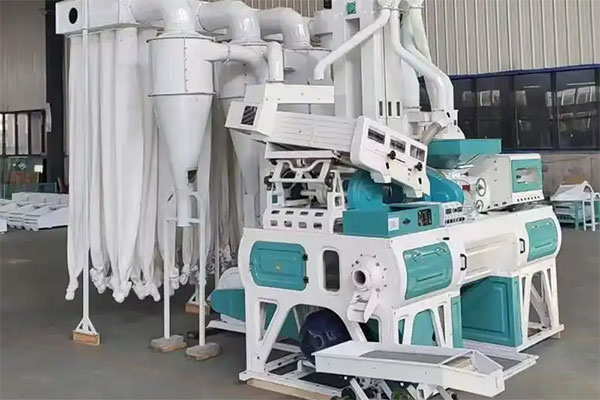Le electric commercial rice mill machine price typically ranges from thousands to tens of thousands of dollars, depending on core technical specifications such as motor power, material durability, and advanced processing features. These rice mill machines are engineered to optimize rice milling efficiency, directly influencing productivity and long-term operational costs. Below, we dissect the device-specific factors that determine pricing, empowering buyers to make informed decisions.

Influencing Electric Rice Mill Machine Price Key Factors
Material Quality and Structural Design
The rice mill machine construction materials directly impact its cost and longevity. Industrial-grade components, such as high-carbon steel rollers (Par exemple, hardened to HRC 55–60) and stainless steel husking chambers, resist wear in high-friction environments, reducing maintenance costs over time. Par exemple, models like the PRESUN 5HPX-20 grain dryer use corrosion-resistant coatings to withstand humid milling conditions, justifying a 15–20% price premium compared to standard carbon steel alternatives. En plus, cast iron gearboxes enhance torque transmission but increase manufacturing expenses.
Motor Power and Energy Efficiency
Motor specifications are pivotal. Commercial rice mills require 7.5 kW to 30 kW three-phase motors, with higher-power models (Par exemple, 22 kW motors in 5HPX-20 dryers) enabling faster processing of 1–5 tons/hour. Energy-efficient designs complying with IE4 or NEMA Premium standards reduce electricity consumption by 10–15%, but require precision-engineered copper windings and advanced inverters, adding 1,000–1,000–3,000 to the base price.
Technological Integration
Advanced features significantly elevate costs:
Automated Sorting Systems: Optical sensors for bran separation or color-sorting defective grains (Par exemple, Yamamoto YE-RC21A-WH) increase accuracy but require embedded IoT modules and software licenses.
Variable Speed Control: Adjustable RPM settings (50–1,200 RPM) optimize milling for different rice varieties but demand robust frequency converters.
Heat Management: Integrated cooling systems prevent overheating during prolonged operation, adding 800–800–1,500 to the unit cost.
Certifications and Safety Compliance
Machines meeting CE, ISO 9001, or UL certifications undergo rigorous testing for electrical safety and operational stability. Par exemple, IP55-rated enclosures (dust/water resistant) ensure reliability in tropical climates but require sealed bearings and specialized lubricants, increasing production costs by 8–12%.
Customization and Scalability
Tailored configurations, such as dual-function milling-polishing units or modular expandability (Par exemple, adding a 20-ton dryer module to a base system), involve additional R&D and machining.
Conclusion
The price of an electric commercial rice mill machine is shaped by material robustness, motor efficiency, technological sophistication, certifications, and bespoke adaptations. While upfront costs may vary, investing in a high-performance machine with durable components minimizes downtime and energy expenses, delivering long-term ROI.
Ready to Elevate Your Rice Milling Operations?
Our engineering team specializes in tailoring solutions to your production needs—whether you require a compact 5-ton/hour unit or an industrial-scale 50-ton system. Request a free consultation today to receive a detailed quote and technical specifications. Click below to connect with our experts and discover how our rice mill machines can maximize your profitability!

